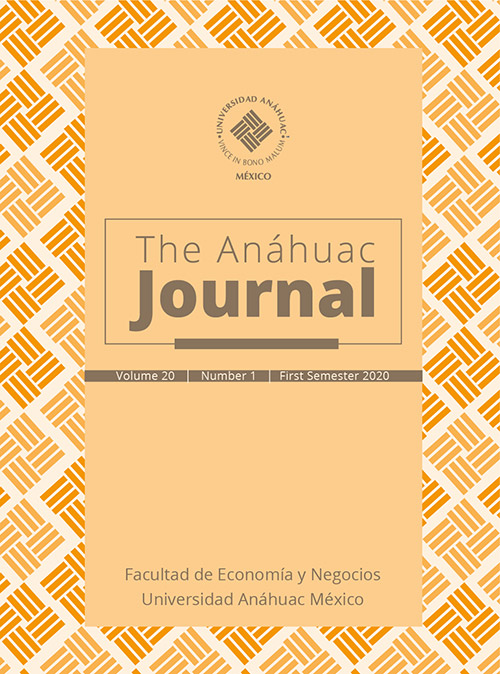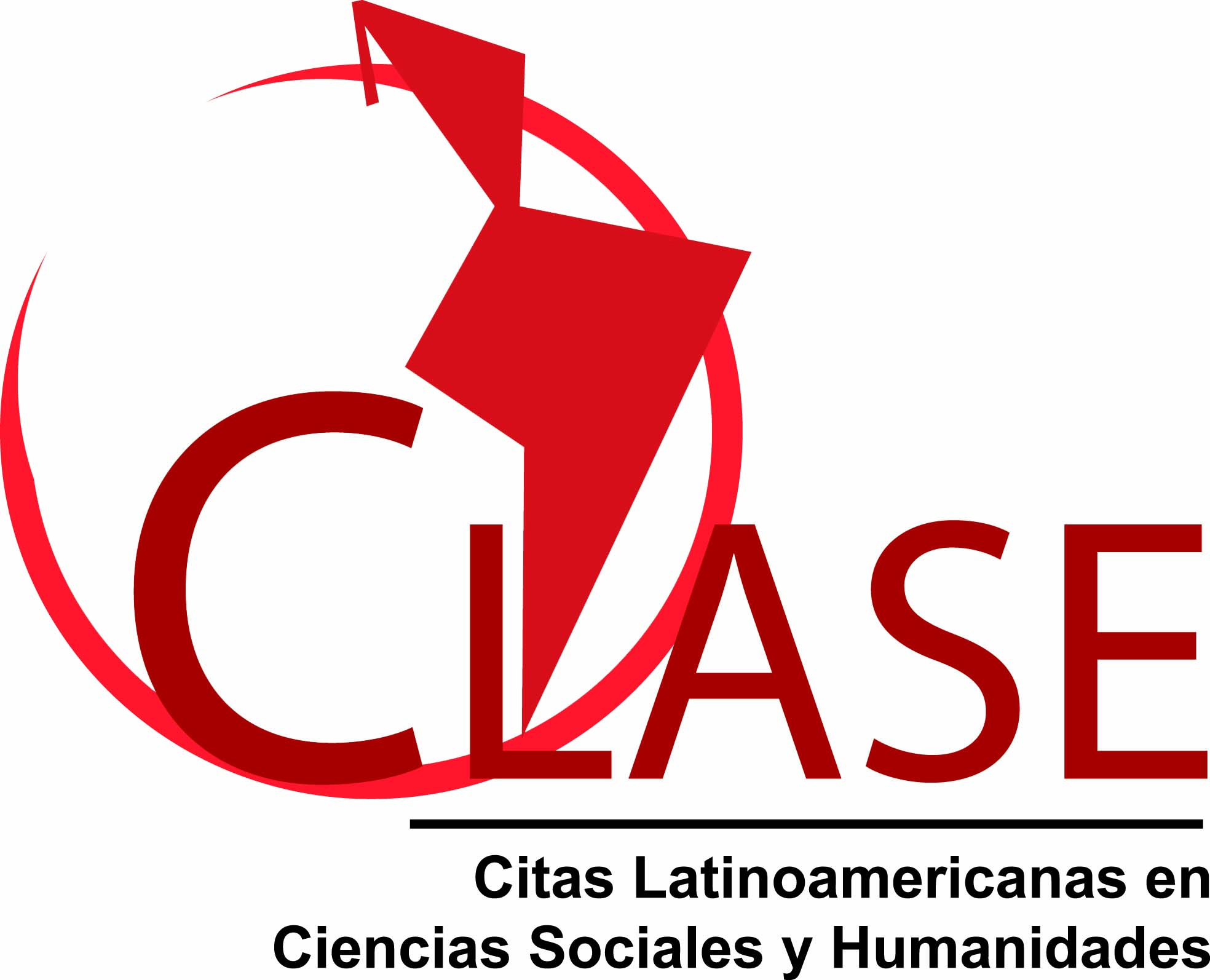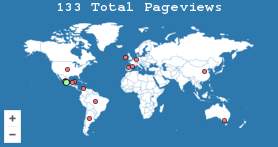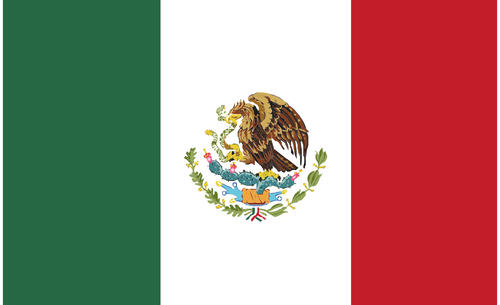De la ética empresarial a la sostenibilidad, ¿por qué debe interesar a las empresas?
DOI:
https://doi.org/10.36105/theanahuacjour.2020v20n1.03Palabras clave:
ética, ética empresarial, responsabilidad social, sostenibilidad, desarrollo sostenibleResumen
Este artículo analiza el contexto histórico que dio origen al concepto de ética empresarial, la teoría de responsabilidad social empresarial y algunos marcos de referencia para la sostenibilidad. Asimismo, considera las aportaciones de cada concepto y analiza por qué la ética empresarial es la base para crear empresas socialmente responsables. Adicionalmente, el artículo plantea cómo las tres variables conviven y se interconectan para crear organizaciones más sostenibles
que contribuyan al desarrollo sostenible y a fomentar comunidades más justas y balanceadas. Finalmente, ofrece recomendaciones.
Descargas
Referencias
Broman, G. I. y Robèrt, K.H. (2017). «A framework for strategic sustainable development
». Journal of Cleaner Production. Vol. 140, parte 1: 17-31.
Business Roundtable (2019). «Corporate Governance. Business Roundtable Redefines
the Purpose of a Corporation to Promote “An Economy That Serves
All Americans”». Business Roundtable. https://www.businessroundtable.org/
business-roundtable-redefines-the-purpose-of-a-corporation-to-promotean-
economy-that-serves-all-americans
Carroll, A.B. (1991). «The Pyramid of Corporate Social Responsibility: Toward the
Moral Management of Organizational Stakeholders». Business Horizons, 34 (4): 39-48.
Carson, R (1962). Silent Spring. Nueva York: Houghton Mifflin Company
Convención Marco de las Naciones Unidas sobre Cambio Climático (1992). http://
unfccc.int/resource/docs/convkp/convsp.pdf
Crowther. D. y Aras, G. (2008). Corporate Social Responsibility. Boulder, CO: Ventus
Publishing.
Davis, K. (1990). «Five propositions for Social Responsibility», citado en Hoffman, W.
y Mills, J. (2006). Business Ethics. New Jersey: Prentice Hall.
Delmas, M. y Cuerel B., V. (2011). «The Drivers of Greenwashing», Management
Review, vol. 54, núm. 1: 64-87.
Diccionario de la Real Academia Española, DRAE (s/f). https://dle.rae.es/
Dickie, W. (1995). Clair C. Patterson, Who Established Earth’s Age, Is Dead at 73. The
New York Times. https://www.nytimes.com/1995/12/08/us/clair-c-patterson-whoestablished-
earth-s-age-is-dead-at-73.html
Drucker, P. F. (1981). «What is “Business Ethics”?». The Public Interest, 63: 18-36.
Elkington, J. (1997). Cannibals with forks: the triple bottom line of 21st century business.
Oxford: Capstone.
Elkington, J. (2018). «25 Years Ago I Coined the Phrase “Triple Bottom Line.” Here’s
Why It’s Time to Rethink It». Harvard Business Review. https://hbr.org/2018/06/25-
years-ago-i-coined-the-phrase-triple-bottom-line-heres-why-im-giving-up-on-it
Federal Register: 41 Fed. Reg. 52977 (3 de diciembre de 1976).
Federal Register: 42 Fed. Reg. 44801 (7 de septiembre de 1977). Shareholder and
Corporate Governance Issues. Library of Congress.
Freeman, R. E. (1984). Strategic Management: A Stakeholder Approach. Mershfield, MA:
Pitman Publishing.
Global Reporting Initiative, GRI. https://www.globalreporting.org/Pages/default.aspx
Guerin, S. (2019). «Complex Adaptive Systems» (conferencia), en The Complex Systems
Science Gathering. Estocolmo, Suecia.
Hastings, M. (2018). «Trabajar de forma más inteligente y sostenible. Aguardando
una nueva ola» (junta ejecutiva y conferencia), México: KPMG.
Hawken, P., Lovins, A. y Lovins, L.H. (1999). Natural Capitalism, Creating the Next
Industrial Revolution. Nueva York: Little, Brown and Company.
Intergovernmental Panel for Climate Change, IPCC (2018). Global Warming of 1.5°C.
An IPCC Special Report on the impacts of global warming of 1.5°C above pre-industrial
levels and related global greenhouse gas emission pathways, in the context of strengthening
the global response to the threat of climate change, sustainable development,
and efforts to eradicate poverty. https://www.ipcc.ch/sr15/
ISO 26000 Responsabilidad Social (2010). ISO 26000 Visión general de proyecto.
https://www.iso.org/files/live/sites/isoorg/files/archive/pdf/en/iso_26000_
project_overview-es.pdf
Kaufman, B. E. (2012). Wage Theory, New Deal Labor Policy, and the Great Depression:
Were Government and Unions to Blame? ILR Review, 65 (3): 501-532. https://doi.
org/10.1177/001979391206500302
Kliksberg, B. (2000). Capital social y cultura. Claves olvidadas del desarrollo. Documento
de divulgación 7. Buenos Aires: Banco Interamericano de Desarrollo e Instituto
para la Integración de América Latina y el Caribe - INTAL.
Kolk, A. (2016). «The social responsibility of international business: From ethics and
the environment to CSR and sustainable development». Journal of World Business.
Elsevier, vol. 51: 23-34.
KPMG (2018). How to report on the SDGs? What good looks like and why it matters.
KPMG. https://home.kpmg/xx/en/home/insights/2018/02/how-to-report-on-thesdgs.
html
KPMG (2018). Encuesta de Desarrollo Sostenible en México. KPMG. https://home.
kpmg/mx/es/home/tendencias/2018/02/encuesta-desarrollo-sostenible-enmexico-
2018.html
KPMG (2019). «KPMG presenta “Perspectivas de la Alta Dirección en México 2019.
Esfuerzos colaborativos para el crecimiento”». KPMG. https://home.kpmg/mx/
es/home/sala-de-prensa/press-releases/2019/02/kpmg-presenta-perspectivasde-
la-alta-direccion-en-mexico-2019.html
Licandro, O. (2016). La responsabilidad social empresaria. Reflexiones, investigaciones
y casos. Montevideo: Editorial Grupo Magro.
Lozano, J. M. (2004). La responsabilidad social corporativa: una nueva forma de gestión
empresarial, México: ESADE.
Muñoz-Martín, J. (2013). «Ética empresarial, responsabilidad social corporativa (RSC)
y creación de valor compartido (CVC)». Journal Globalization, Competitiveness &
Governability, 7(3): 76-88. https://doi.org/10.3232/GCG.2013.V7.N3.05
Naciones Unidas, ONU (1945). Carta de las Naciones Unidas. https://www.un.org/es/
sections/history-united-nations-charter/1945-san-francisco-conference/index.
html .
Naciones Unidas, World Commission on Environment and Development (1987a).
Our Common Future. The Brundtland Report. Nueva York: Oxford University Press.
Naciones Unidas, Programa de las Naciones Unidas para el Medio Ambiente,
PNUMA (1987b). Protocolo de Montreal. https://www.unenvironment.org/
ozonaction/who-we-are/about-montreal-protocol .
Naciones Unidas, Programa 21, Cumbre para la Tierra de 1992, Río de Janeiro.
Naciones Unidas, ONU (2000). Objetivos de Desarrollo del Milenio. https://www.
un.org/millenniumgoals/bkgd.shtml
Naciones Unidas, ONU (2015). Objetivos de Desarrollo Sostenible. https://www.
un.org/sustainabledevelopment/es/2015/09/la-asamblea-general-adopta-laagenda-
2030-para-el-desarrollo-sostenible/
Robert, K.H.; Holmberg, J.; Daly, H. y Hawken, P. (1997). «A compass for sustainable
Development». International Journal of Sustainable Development and World Ecology,
4 (2): 79-92.
Robèrt, K.H. y Broman, G. (2017). «A framework for strategic sustainable development
». Journal of Cleaner Production, vol. 140, parte 1: 17-31.
Savater, F. (2002). «La ética en el mundo de hoy» (conferencia). Monterrey, Nuevo
León: Tecnológico de Monterrey.
Savater, F. (2014). Ética para la Empresa. Barcelona: Conecta.
Schwab, K. (2016). La cuarta revolución industrial. World Economic Forum.
Thulasivelu, K. (2012). Business Ethics, Corporate Social Responsibility and Governance.
India: Sasurie College of Engineering, Department of Management Sciences.
Valor, C. (2005). «Corporate Social Responsibility and Corporate Citizenship: towards
Corporate Accountability». Business and Society Review, 110 (2): 191-212.
Vives, A. (2006). «Social and environmental responsibility in small and medium
enterprises in Latin America». The Journal of Corporate Citizenship, 21: 85-94.
Werner, K y Weiss, H. (2003). El libro negro de las marcas: el lado oscuro de las empresas
globales (3ª. ed.). Buenos Aires, Editorial Sudamericana.
Weyzig, F. (2006). «Local and global dimensions of corporate social responsibility in
Mexico». The Journal of Corporate Citizenship, vol. 24: 39-50.
Sesiones y asesorías directas
G. Broman y K.H. Robèrt (2005). Programa de posgrado Master’s for Strategic Leadership
towards Sustainability. Blekinge Tekniska Högskola, Karlskrona, Suecia.
Robèrt, K.H. (2005). Karlskrona, Suecia.
Obras consultadas
Carroll, A. B. (2000). «The Four Faces of Corporate Citizenship». En Richardson, J. E.
(ed.). Business Ethics 00/01. Nueva York: Dushkin/McGraw-Hill: 187-191.
Cedillo, C.; Garcia-French, M.; Hordijk, R. y Lana Olup, K.N. (2012). «Four Case Studies
on Corporate Social Responsibility: Do Conflicts Affect a Company’s Corporate
Social Responsibility Policy?». Utrecht Law Review, vol. 8, núm. 3.
Díaz, R. (2017). «La relación entre desempeño financiero y responsabilidad social
empresarial (un estudio de 63 empresas emisoras de la Bolsa Mexicana de Valores)
». The Anáhuac Journal, vol. 17, núm. 1.
Duque, Y., Cardona, M. y Rendón, J. (2013). «Responsabilidad Social Empresarial:
Teorías, índices, estándares y certificaciones». Cuadernos de Administración, vol.
29, núm. 50: 196-206.
Gardiner, R. (2018). «Ethical Responsibility - An Arendtian Turn». Business Ethics
Quarterly 28: 1.
GlobeScan & SustainAbility (2017). Evaluating Progress toward the Sustainable Development
Goals. https://globescan.com/evaluating-progress-towards-the-sdgs/
GlobeScan (2018). The 2018 GlobeScan-SustainAbility Leaders Survey. https://globescan.
com/2018-sustainability-leaders-report/
Goel, M. y Ramanathan, P. (2014). «Business Ethics and Corporate Social Responsibility.
Is there a dividing line?». ScienceDirect. Procedia Economics and Finance.
Elsevier, vol. 11: 49-59.
González, A., (2018). «Re-thinking social responsibility and business ethics. A review
of the thinking of Gilles Lipovetsky». Gestión y estrategia, núm. 53.
Haces, J.A. (2015) Motivaciones de la responsabilidad social corporativa en Latinoamérica.
The Anahuac Journal, vol. 15, núm. 2: 11.
Nizam, E.; Ng, A.; Dewandarub, G.; Nagayevc, R. y Nkoba, M.A. (2019). The impact
of social and environmental sustainability on financial performance: A global
analysis of the banking sector. Journal of Multinational Financial Management,
Elsevier. Volume 49(C): 35-53.

Publicado
Número
Sección
Licencia
The Anáhuac Journal se distribuye bajo Licencia Creative Commons Atribución-NoComercial-CompartirIgual 4.0 Internacional.






























